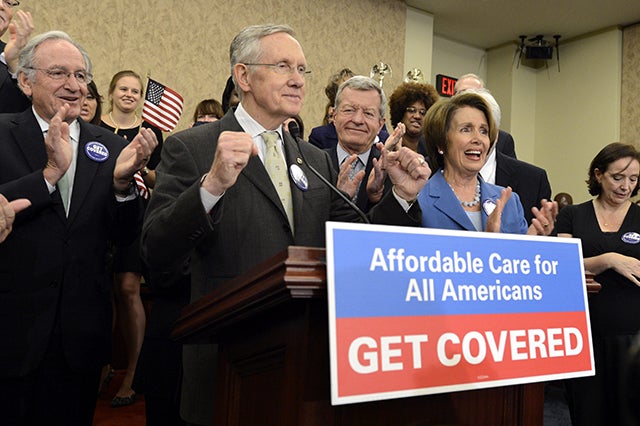Jolly Victory Proves Democrats Backing Obamacare Vulnerable in Purple Areas
Genevieve Wood /
House conservatives are taking away a simple lesson from Republican David Jolly’s win in Florida yesterday: Voters still don’t like Obamacare.
When I asked the 12 Republican representatives at The Foundry’s Conversations with Conservatives event today if they believed Obamacare was the key issue in Jolly’s defeat of Democrat Alex Sink in Florida’s thirteenth district, every member nodded in agreement.
“When I first heard Mr. Jolly had won the election, I said thank you, Obamacare,” said Rep. John Duncan (R-TN).
I trust Duncan and many other Republicans got a good night’s sleep last evening. But that probably wasn’t the case for Sens. Mark Pryor (D-AR) or Mary Landrieu (D-LA) or Kay Hagan (D-NC), all in tight reelection campaigns, or even for Rep. Gary Peters (D-MI), who wants to replace retiring Democrat Carl Levin as the next Senator from Michigan. I’d venture to guess they tossed and turned a bit.
Sure, it’s rare that any election is strictly about one issue. But in this case it just might be. Consider that Sink led Jolly in fundraising, that she carried the district when she ran for governor in 2010, and that President Obama carried it in both 2008 and 2012. In other words, Sink had plenty of advantages over Jolly in this election.
Slate’s David Weigel offered this analysis before the votes were counted:
Florida’s 13th is bluer than the rest of Florida, and much bluer than the states—Arkansas, Louisiana, North Carolina—that will decide control of the Senate…If Obamacare could break Sink, it could break anyone. If she can defend the law, Democrats in tougher races will start to believe they can, too.
Sink tried to defend Obamacare using the same messaging we’ve now heard from Landrieu and others running scared—that while they supported the Affordable Health Care Act, they certainly believe it now needs fixing. That message didn’t work for Sink—who never even actually voted for the law, as she has not been in Congress. On the other hand, Landrieu, Pryor, Hagan, Peters, and other Democrats in tight races all did actually vote for the law
If you’re a Democrat, that is something to lose sleep over.

